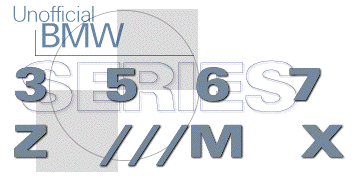|
Ron Stygar Carl Buckland Dale Beuning Forums Help
From digest.v6.n228 Sun Feb 16 16:16:38 1997 FWIW, The replacement bolts your dealer supplied are referred to as s-t-r-e-t-c-h bolts, because they are PERMANENTLY stretched when properly installed. When stretched they actually "neck down" or have a reduced diameter and area where the metal has been stretched. This reduced area has experienced Plastic Deformation, and will not hold the same torque (tension) if applied again, it will in fact stretch more, (loosing tension) and often fracture. This is why stretch bolts must ALWAYS be replaced, and never reused. Stretch bolts are used by car manufacturers for several reasons, usually none of what is reported in the hotrod magazines... First with stretch bolts automated engine assembly is much easier as the tightening of the bolt can vary by as much as 1/2 turn in most cases and provide the same clamp force. This is due to the fact that when a fastener is tighten into plastic deformation, it will not change it's effective tensile strength, (and clamp force) by very much over a given amount of elongation, (stretch). So when the pneumatic machine tightens the bolts in your engine, it can vary up to 1/2 turn and still have the same clamp force... at least in theory. Having watched the engines being assembled using this method, and viewing real-time direct readouts of clamp force verses degree rotation of the bolt, I can assure you reality and theory are not in 100% agreement! The second reason car companies use stretch bolts is that ALL composite head gaskets take a thermal set in operation. Solid annealed steel gaskets may have minimal gasket compression after engine operation, but usually exhibit some, though less than any of the composite gaskets. Forget what you've read about permanent torque head gaskets, as they don't *really* exists. Perhaps less torque LOSS gaskets would be a better term than permanent torque... Now the reason for this lesson in engine design... is to expose the popularity of stretch bolts. Anyone who's been in the auto industry for 20 years or more probably remembers the days when it was mandatory to re-torque head bolts on new cars after 1,000 miles or so. This was because of the above issues with gasket compression after operation. Well "stretch bolts" were intended to be the cure-all and end-all of head gasket re-torquing... as the car companies were paying dealers to re-torque the head bolts on new cars, which costs lots of money. Unfortunately, stretch bolts may not have totally lived up to their billing. In order for a stretch bolt to be cost effective, it is often made from low grade steel with a class rating of 10.9 and a typical tensile strength of 150,000 PSI. Some companies use even LOWER strength stretch bolts! For anyone familiar with Society of Automotive Engineering specs, you'll realize that a metric class 10.9 rated bolt has about the same tensile strength as an SAE grade 8 bolt available from your local hardware store... Not exactly Rocket Science quality fasteners. The clamp force between the head and block is limited by the yield point strength of a particular bolt. The yield point is the point at which plastic deformation (stretch) occurs with little increase in clamp force. Low strength bolts limit the available clamp force which can allow head gasket leaks. By using a stretch bolt, manufacturers are attempting to maintain the same clamp force when a head gasket is initially installed and AFTER it has been thermally cycled and compressed. In reality, this doesn't often occur as the gaskets do not compress uniformly over the entire gasket surface, and there are other factors especially the structural rigidity of the head and block, that enter into the equation. Due to the many variations that can and do occur, stretch bolts have a checkered history. When used in a NON-gasketed installation, stretch bolts seem to meet basic clamping requirements, as long as they are not subjected to loads that exceed the humble tensile strengths of their design. In gasketed applications, our experience is that they are a "cost effective" measure for the manufacturer, but not the best engineered fastener design for maximum performance and reliability. As an example, it's not un-common for engines equipped with stretch bolts to experience head gasket failures. Typically it starts as an oil or coolant leak and can eventually lead to compression loss to the coolant system and chronic engine over-heating. This is usually a result of the stretch bolts having insufficient clamp force to keep the head from lifting on the gasket due to cylinder pressure. Over time the head gasket deteriorates to the point where a leak is visible or over-heating occurs. Regardless of how competent a technician is, if the head bolts have inadequate clamp force, the problem will re-occur, and usually sooner than later. The solution is to install better quality fasteners with adequate strength to meet the demands of the application. Your Mileage May Vary -- Literally! Regards, On the 'Bahn, Randy, a.k.a. BoltMeister NEW** VW/Porsche/BMW Interest At: http://www.wwnet.com/~raceware **NEW <snip>
> *** My dealership sold me torx head bolts for my '83 528e when I did a
> ****************************************************************** > Norm Grills (grills_at_airmail.net) Plano Texas BMW CCA # 57310
> > Lone Star BMW Riders \ http://web2.airmail.net/grills/ > ****************************************************************** |

